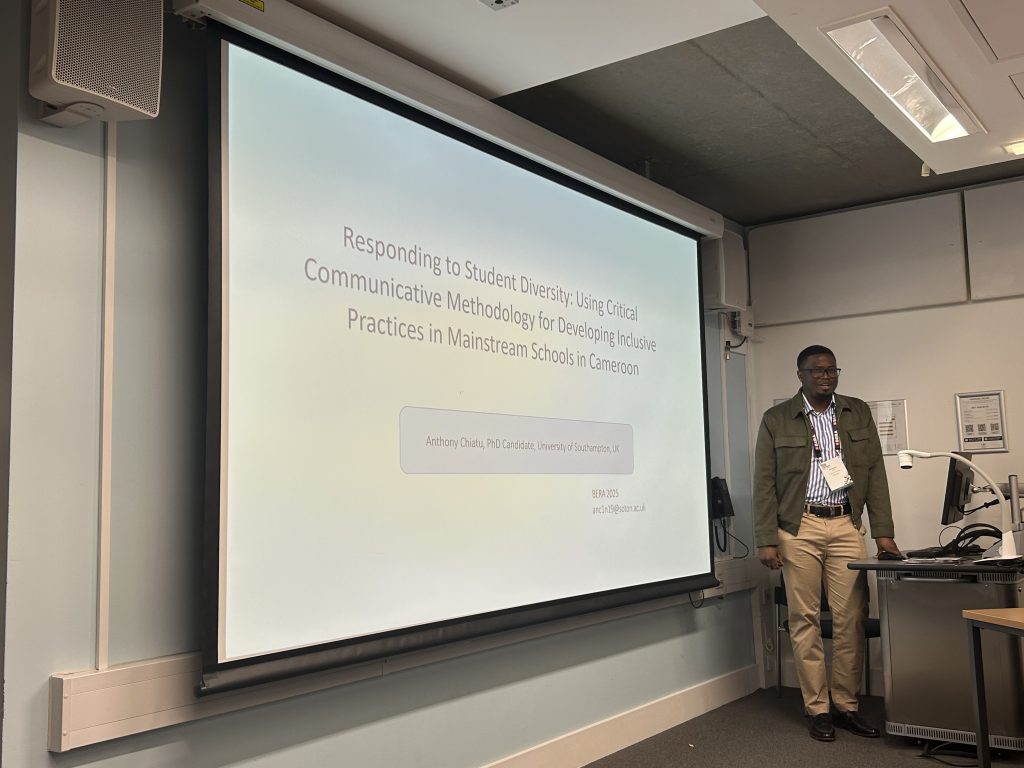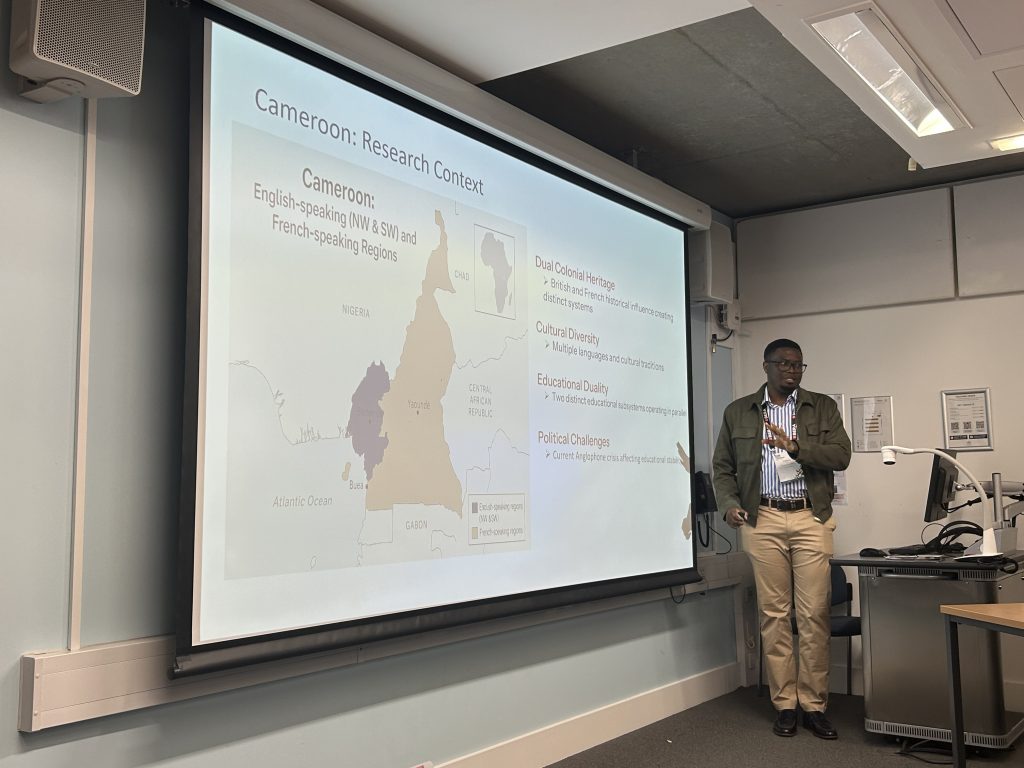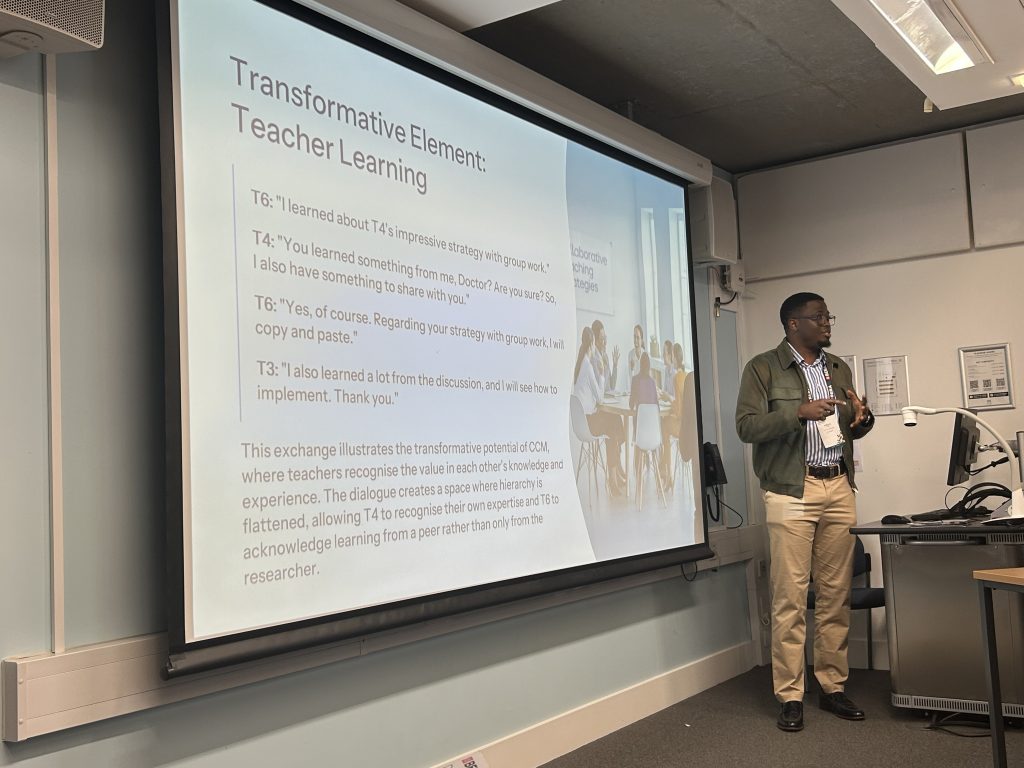Receiving the SIG Best Presentation Award ‘Highly Commended Abstract‘ at the 2025 British Educational Research Association (BERA) conference, was both a humbling and inspiring moment. This recognition affirms the importance of inclusive educational research within the Cameroonian context, a field that often faces structural and socio-cultural challenges but is essential for achieving educational equity.



My presentation, titled “Responding to Student Diversity: Using Critical Communicative Methodology for Developing Inclusive Practices in Mainstream Schools in Cameroon,” explored how Critical Communicative Methodology (CCM) can be used to foster collaboration among teachers, students, Parents and communities. CCM, grounded in dialogue and egalitarian participation (Gómez et al., 2011), provides a framework for co-constructing educational practices that value every learner’s voice especially those often marginalized in mainstream settings (Ainscow & Messiou, 2018; Messiou, 2012, 2019, 2022).
During the conference, discussions with international scholars deepened my understanding of how participatory research can transform classroom cultures. I was particularly struck by the resonance between local Cameroonian experiences and global inclusion debates. Many educators across contexts grapple with similar barriers, limited resources, rigid curricula, and systemic exclusion, yet also share a commitment to creating spaces where all children can thrive.
One key insight was the power of dialogue as transformation. When teachers and students engage in authentic communication, classroom practices shift from being teacher-centered to genuinely inclusive (Strogilos, 2024). This approach does not impose solutions from outside but rather co-develops them through shared reflection and evidence-based practice (Walton, 2025).
This experience has had a profound impact on my research trajectory. It has strengthened my commitment to participatory methodologies and to amplifying the voices of teachers, parents and students in shaping inclusion policies in Cameroon. More broadly, it contributes to the global discourse on how inclusion is not merely about integration, but about reimagining education as a collaborative, justice-oriented process (Booth & Ainscow, 2002; Slee, 2019).
As I continue this work, I hope to expand partnerships with schools and researchers who share this vision. Awards such as this one not only recognize individual effort but also highlight the collective movement toward educational inclusion, one dialogue at a time.
